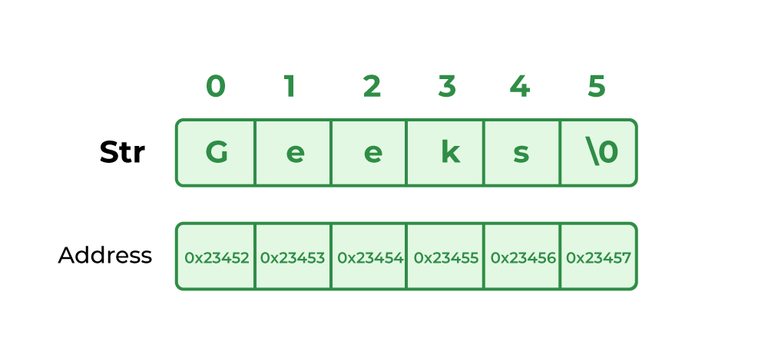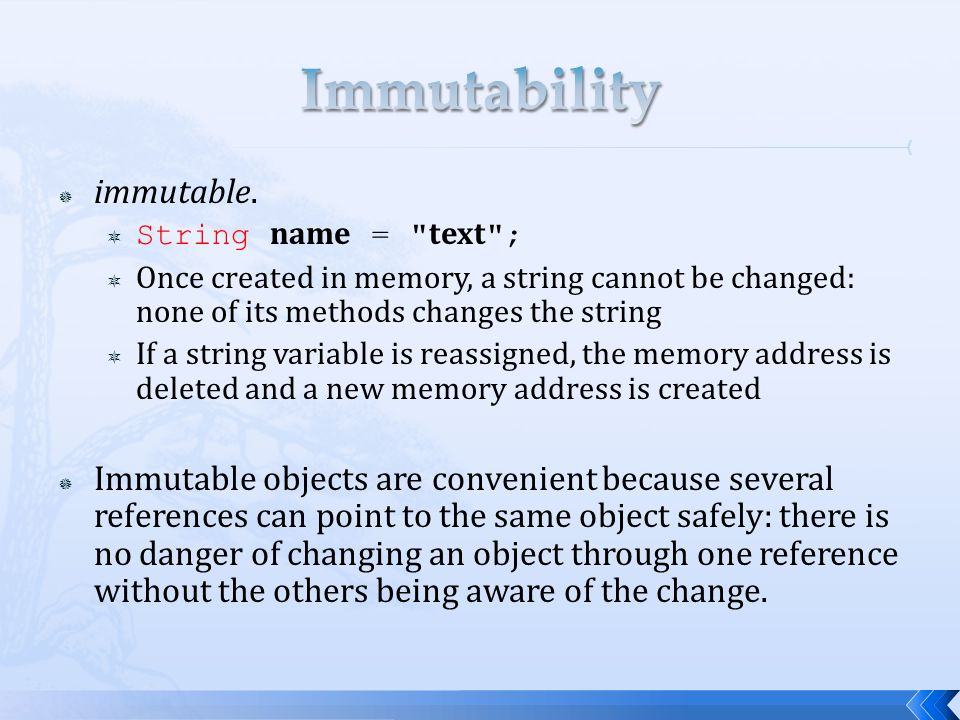Why Are Strings Immutable in Java? Protection and Efficiency Conveniences
Why Are Strings Immutable in Java? Protection and Efficiency Conveniences
Blog Article
Unalterable Strings: A Key Element in Ensuring Data Consistency and Dependability
In the world of data administration, the relevance of immutable strings can not be overstated. These imperishable series of personalities play a crucial role in supporting the stability and precision of information within systems. By maintaining a state of immutability, data consistency is guaranteed, promoting a structure of integrity whereupon crucial processes rely. The concept of unalterable strings transcends simple triviality; it is a linchpin in the complex internet of information administration. As we check out the advantages, execution methods, and sensible applications of immutable strings, a more clear image emerges of their indispensable nature in protecting the digital landscape.
The Principle of Immutable Strings
Immutable strings, a fundamental concept in programs, describe strings that can not be changed when they are developed. Essentially, once a string worth is assigned, any kind of procedure that appears to change the string actually develops a brand-new string. This immutability guarantees data uniformity and integrity in applications, as it prevents unexpected modifications to the initial data.
Advantages in Information Consistency

Data consistency is important in various elements of software application development, consisting of database administration, multi-threaded environments, and dispersed systems (Why are strings immutable in Java?). Immutable strings add considerably to attaining this uniformity by protecting against data corruption due to concurrent accessibility. In circumstances where numerous processes or strings communicate with the exact same data concurrently, unalterable strings function as a secure versus race conditions and synchronization problems
In addition, the immutability of strings simplifies debugging and testing processes. With unalterable strings, designers can rely on that when a string is established, it will continue to be the same, making it less complicated to map the source of errors and making certain that examination cases produce consistent outcomes. This integrity in data handling ultimately brings about extra robust and stable applications.

Carrying Out Immutable Strings
Ensuring the immutability of strings calls for a thoughtful technique to their execution in software program advancement. One key strategy is to design string courses in such a way that prevents adjustments when a string object is created. By making strings unalterable, designers can improve information uniformity and dependability in their applications.
To execute immutable strings efficiently, designers ought to favor developing brand-new string things as opposed to changing existing ones. This practice makes certain that as soon as a string is designated a worth, it can not be transformed. Furthermore, any kind of procedure that appears to customize the string should develop a new string with the wanted modifications rather than changing the original.
Moreover, utilizing unalterable strings can simplify concurrency administration in multi-threaded environments. Since unalterable strings can not be altered after production, they can be safely shared among several threads without the danger of data corruption.
Function in Reliability Assurance
In software application advancement, the usage of immutable strings plays an important duty in ensuring the integrity of information operations. Unalterable strings, once produced, can not be modified, ensuring that the information they represent stays consistent throughout the application's implementation. This immutability property gives a degree of guarantee that the data being refined will certainly not be unintentionally altered, leading to unforeseen results or mistakes in the system.
By integrating unalterable strings into software design, programmers can improve the dependability of their applications by reducing the dangers connected with mutable data - Why are strings immutable in Java?. Immutable strings help in avoiding information corruption or unplanned alterations, which can be particularly crucial when taking care of sensitive info or when Get More Information information honesty is paramount
Moreover, the use of immutable strings streamlines concurrent handling, as numerous threads can securely accessibility and share string information without the threat of one string altering the material while another reads it. This aspect contributes considerably to the overall reliability of the software application system, making certain foreseeable and consistent behavior in information handling operations.
Applications and System Assimilation
The seamless assimilation of unalterable strings right into numerous applications and systems is pivotal for ensuring robust data uniformity and integrity across varied technical environments - Why are strings immutable in Java?. Unalterable strings play an important duty in enhancing the stability of information exchanges and interactions within facility software program communities. By including unalterable strings right into applications, designers can minimize the dangers connected with data tampering, unapproved alterations, and inadvertent modifications, thereby fortifying the general protection stance of the system
Immutable strings can boost interoperability between diverse systems by providing a standard format for data representation, making it possible for much more efficient data processing and exchange methods throughout interconnected systems. By taking on immutable strings in applications and system integration processes, organizations can strengthen their data framework and support the integrity and uniformity of their information assets.
Final Thought
In conclusion, unalterable strings play a crucial role in keeping information uniformity and reliability in various applications and system assimilations. By making certain that strings can not be changed when developed, the honesty of data is preserved, lowering the danger of mistakes and variances. their website Carrying out immutable strings can significantly improve the dependability of systems, ultimately bring about even more exact and dependable information processing.

Report this page